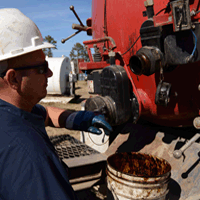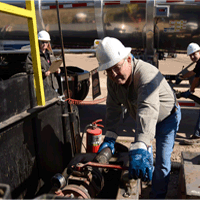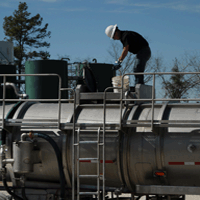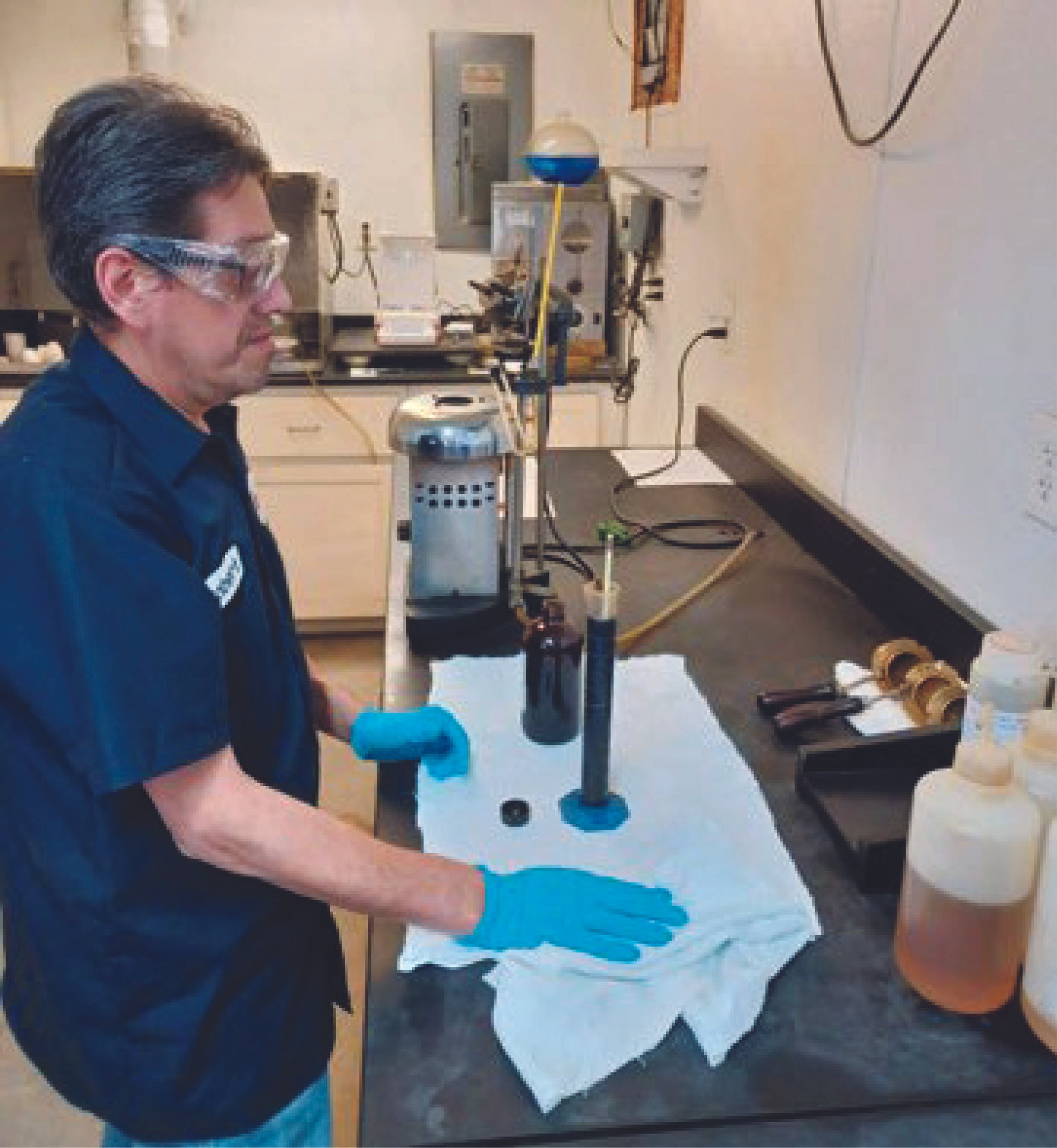
ABOUT US
Phoenix Oil is an innovative, Humble-based service company that specializes in the repurposing of contaminated crude, or crude oil emulsions, as well as off specification industrial fuels. Established in 1981, Phoenix Oil has grown from a single oil collection truck to a highly sophisticated fuels blend and processing facility. With our advanced laboratory, sophisticated technology, and expansive fleet of trucks, Phoenix Oil can provide a solution for any company that needs help managing off spec fuels or oils.
Safety and responsiveness are two of Phoenix Oil’s main priorities. Since the company’s foundation, Phoenix Oil has produced an exemplary safety record that speaks to our reliability and professionalism. We also take pride in our quick thinking and acting logistics chain, which can respond to our customers’ needs nearly instantly. Though Phoenix Oil has grown steadily through the years, we are flexible and creative enough to address any client’s request in record time. Our fleet of trucks can travel anywhere in the lower 48 states and Canada, and are capable of moving nearly any material. Phoenix Oil also has access to a variety of trailers, power units and other technologies, which allows us to be responsive to our clients needs..
Phoenix Oil also works to maintain a strong grasp on current regulations in the industry. We are experts on regulatory language and have evolved with changes in the field. Our focus on obtaining, recycling and repurposing hydrocarbon streams helps us assure the proper final use for recyclable materials. Phoenix Oil places a major emphasis on environmental protection, so we adhere strictly to current regulations and work to help other petrochemical companies reduce their impact on the planet. No problem is too complex or too difficult for Phoenix Oil’s laterally-thinking team.
Phoenix Oil’s headquarters and laboratories are located in Humble, Texas, but we have added other locations to better serve the industry. We currently have locations in:
-
Located just north of Houston, Phoenix’s Humble location serves as the headquarters for the company. Since 1981, Phoenix’s headquarters has been the foundation of the company, and the site of many of its most important technologies. The company’s command structure is also based here, so it can service any clients out of this location.
Before Phoenix expanded to become a well-known presence along the gulf Coast, it was a local business that helped Humble businesses deal with their wastes and surplus/distressed petroleum products. This main location has since grown rapidly, from a single oil collection truck to a sophisticated logistical network capable of responding to clients needs no matter what they are.
Though Phoenix has expanded steadily in the last few decades, Phoenix’s Humble headquarters is still a terminalling stronghold. With vast facilities for storage and material handling, it is not just the executive control center, it is a fully operational hydrocarbon handling facility. This location can also facilitate truck loading and unloading and is equipped to deal with a variety of cargo vehicles.
With an on-site lab, Phoenix can sample and test any materials that a client needs a solution for. Phoenix has many years of experience sampling heavy oils, hydrocarbons, or solvents, and can quickly determine the quality and value of any material a client has on hand. This information can be used to determine the best way to recycle and repurpose the material in accordance with current environmental regulations. Phoenix also maintains much of its top technologies out of its headquarters. Of particular note is its centrifuging capability. With this capability, Phoenix can quickly and cost effectively facilitate the separation of hard to break emulsions.
Though Phoenix’s reach has widened in its 33 years of doing business, Humble is still the company’s heart.
-
Since 1981, Phoenix Oil has expertly handled, recycled and repurposed a variety of fuels and petroleum products. Starting as a small, local business in the north Houston suburb of Humble, Texas, the company has since expanded its reach across Texas and beyond. Brownsville was one of the first areas Phoenix established itself outside of Humble, looking to create a convenient staging area for marine vessels and international traffic. With additional capabilities, this location allows the company to serve even more clients and at greater efficiency.
Brownsville, Texas is located near the southern tip of the state and sits on the border between the U.S. and Mexico. With its close proximity to Mexico, Phoenix can better serve petroleum companies moving traffic to and from the country. Handling materials moving in or out of Mexico can be difficult for petroleum companies to deal with, but Phoenix makes the process much easier to handle with its state of the art facilities and resources.
Phoenix’s Brownsville location is a sophisticated terminalling facility with ample liquid storage for its clients. The facility is fully fenced and located inside the Port of Brownsville free trade zone and offers the added security provided by the port. Onsite rail spurs allow Phoenix to facilitate rail-to-truck transfers in addition to truck-to-truck transfers for material coming into and out of Mexico. With access to its sister company’s fleet of trucks, Phoenix can also offer a logistical advantage to any operations in south Texas.
Phoenix works closely with a series of shipbreakers out of Brownsville. Phoenix manages all the liquids removal from the decommissioned ships and recovers hydrocarbons and heavy fuels left on the ships. During the dismantling process, Phoenix adheres closely to all safety and environmental regulations, ensuring Texas’s waterways and coastline remain pristine. All recovered materials are strictly monitored and tested for quality control and handled accordingly with regards to all environmental regulations.
Phoenix’s expansion to south Texas represents a step up in scale and versatility for the company. From here, Phoenix can serve clients in a variety of ways.
-
Phoenix’s lab is one of its core strengths as a hydrocarbon recycler as it enables us to analyze a variety of oils and fuels. At the lab, Phoenix can sample, test nearly any distressed, surplus, or heavy oil, even hard to break emulsions. Extensive testing allows Phoenix to precisely determine the value and quality of any material, thus enabling efficient recycling. Some of the tests that Phoenix performs in their lab are:
The API Gravity test (ASTM-D 287)
The API Gravity test uses a glass hydrometer to calculate the API gravity of petroleum products and crude. It is normally implemented on liquid materials that are under 26 psi of Reid vapor pressure. Gravities are determined at 60 degrees Fahrenheit, or reference tables are used to convert the expected API gravity at 60 degrees Fahrenheit.
The Flash Point test (ASTM-D 93)
The Flash Point test uses steady increases of temperature to determine the flash point (the minimum temperature needed for vaporization prior to ignition). A Pensky-Martens closed-cup apparatus, manual or automatic, is used to calculate the flash point and is compatible with a number of petroleum products. Ascertaining the flash point of a hydrocarbon source is important for understanding its properties and for determining the safest way to handle the material.
The Ash test (ASTM-D 482)
The Ash test calculates the concentration of ash aggregated in crude oils, lubricating oils, distillate and residual fuels, waxes and other petroleum products. Any contaminants that can produce ash will affect the quality of these materials negatively. Ash residue can result from a number of compounds, including metals, dirt, or rust. This value is important for determining what applications the oil or fuel is compatible with as well as aiding in determining the value of the product.
The Water and Sediment test (ASTM D 4007)
The Water and Sediment test uses a centrifuge to determine the presence of water in a petroleum product. In most cases, the concentration of detected water is lower than the actual concentration of water present in the product. When additional accuracy is needed, both Test Method D 95 and Test Method D 473 can provide more precise results. A centrifuge, though, is still a critical part of the process because it can provide quick results that are approximately correct. This allows Phoenix to quickly assess potential feedstocks and saves valuable time compared to the lengthier, higher accuracy tests.
The Water by Distillation test (ASTM-D 95)
The Water by Distillation test is also used to determine the concentration of water, ranging between zero and 25 percent in volume. This test is compatible with a number of petroleum products and tars, among other materials. The distillation test is important for precisely determining the water content in an oil or fuel. The concentration of water in the material will factor into how it is handled and is important for determining the value of potential feedstocks.
The Sediment by Extraction test (ASTM D 473)
The Sediment by Extraction test is used to calculate the presence of sediment with the use of toluene. It is compatible with a number of crude and fuel oil. Precise detection of sediment is possible with sediment levels between 0.01and 0.40 percent of material mass, though detecting higher levels of sediment is possible. A toluene wash is used with a sample of the product and dissolves any soluble organic materials present. The sediment is then filtered out, and this can be used to precisely calculate the concentration of sediments in the product. This test is important for producing the best handling methods of a product and is also a major determinant of value.
The Atmospheric Distillation test (ASTM D 86)
The Atmospheric Distillation test uses a laboratory distillation unit to calculate the boiling range of natural gasolines, automotive fuels, aviation fuels, light and middle distillates, diesel fuels, special petroleum spirits, napthas, kerosenes and burner fuels. This helps Phoenix understand the composition and properties of a potential feedstock.
These tests are essential to ascertain how a material should be recycled and what it is worth in the market. Phoenix, with its advanced lab, can efficiently perform these tests on all potential feedstocks and products and would welcome the opportunity to assist you in evaluating your projects.





